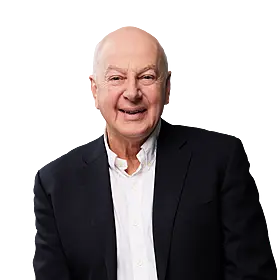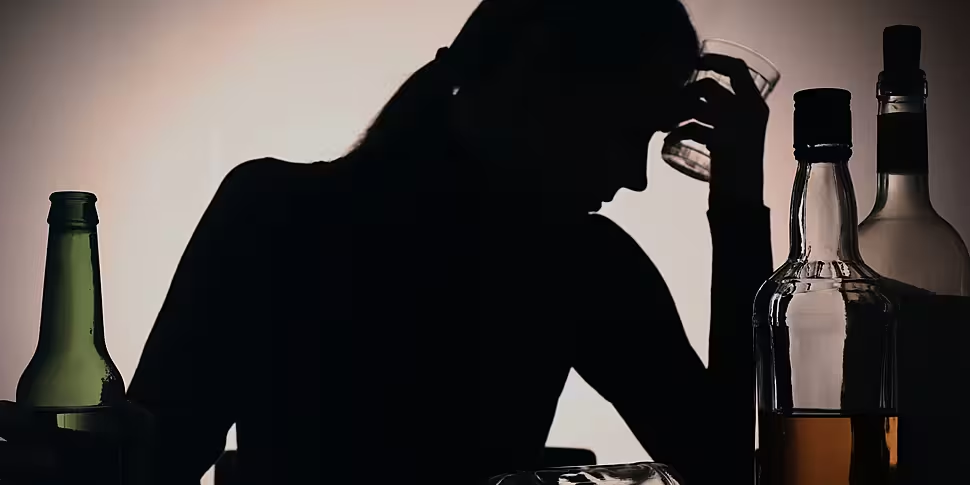A woman who battled alcoholism at 23 has said she is 'grateful' to be alive every day.
Young people from across Ireland will gather on Friday in Clare for the Young People In Alcoholics Anonymous Convention.
The IREYPAA was founded for the purpose of providing a setting for an annual celebration of sobriety in Alcoholics Anonymous, with emphasis on showing how young people can get and stay sober.
The group said the number of young people suffering from alcoholism and turning to AA for help is growing.
Sophie has been sober for almost 10 years. She told Lunchtime Live she did not know she was an alcoholic.
"It was very, very challenging because I didn't know anything about alcoholism," she said.
"I didn't really know what it was to be an alcoholic, I just knew that I had an issue with alcohol.
"It used to never really be that way; it became progressively worse as the years went on from when I first started drinking."
'How can I be an alcoholic?'
Sophie said she was a 'shell of a person' when she first sought help.
"I found it very difficult getting sober at 23," she said.
"I thought, 'How can I be an alcoholic, I'm 23'?
"It was tough because a lot of my friends drank and I thought, 'How am I supposed to have a life without alcohol?'
"I couldn't see it at the time but it had taken over my life completely, to the point where I had dropped out of college, I couldn't work, I was on the dole.
"It was just a miserable existence".
'The reality of conceding'
Sophie said she had to really look at her drinking habits before she realised what was wrong.
"It took over a year and a half of being in AA to find acceptance,"she said.
"I kind of battled with the idea of never being able to drink alcohol ever again.
"That's the reality of conceding; I had to understand what it is to be an alcoholic.
"It wasn't so much my circumstances [but] it was a lot to do with my relationship with alcohol: what effect is has on me when I take a drink.
"I saw that I would lose control, that's it, every time I took a drink I would not just not be able to control the amount.
"That was one big element of it".
'I could never win'
Sophie said she unknowingly tried to test herself as well.
"I'd try these experiments, I didn't know I was doing experiments, where I would try and not drink for a period of time and think, 'Oh I can control it now'.
"Then I'd start drinking again and then the same cycle would happen and it get worse and worse.
"I'd try varying my drinks - 'Oh it was vodka, so I'll switch to wine' - or I'll drink like a lady.
"I used to go with girls who would just be able to have two drinks be watching them at the same time and drinking it at the same time.
"[I was] trying to figure out what's the solution here and I could never win".
Sophie said her alcoholism was about what it did for her.
"I loved the effect alcohol had on me and it really is that simple," she said.
"It's not to do with my anxiety or fear or anything like that.
"I loved what it did for me, and of course I'm going to keep drinking more and more of it because I love the effect".
'Delusion is a big problem'
Sophie said her family was first to point it out which she resisted.
"I couldn't see I had a problem," she said.
"Delusion is a big problem with alcoholism, it's not denial.
"I can deny other thing but to deny is to understand there's some truth there.
"But [with] dilluision I can't see I've a problem - and that's the frightening thing about alcoholism."
Sophie said her drinking cost her people and relationships.
"I was losing friends, meaningful relationships were being pushed aside because if they challenged me on my drinking they were gone," she said.
"It was more important for me to have the bottle than it was my relationships and I couldn't see it".
'It was my first love'
Sophie said conceding her problem with alcohol was "like a grief".
"I had a playlist of songs that related to alcohol and I would listen to it and just cry and cry," she said.
"I knew it was like a break up, it was my first love, it was my solution to everything.
"It was how I functioned in life and now it's been removed from me.
"The whole purpose of going through the 12 steps is to have a way of living and that's what it gave me.
"I didn't think I'd live, to be honest, I thought I'd be dead by 25," she added.
Sophie said that you 'never really finish' the recovery programme.
Listen back here:
Anyone affected by issues raised in this article can contact Alcoholics Anonymous Ireland on (01) 842 0700 or email gso@alcoholicsanonymous.ie
More information can be found here









